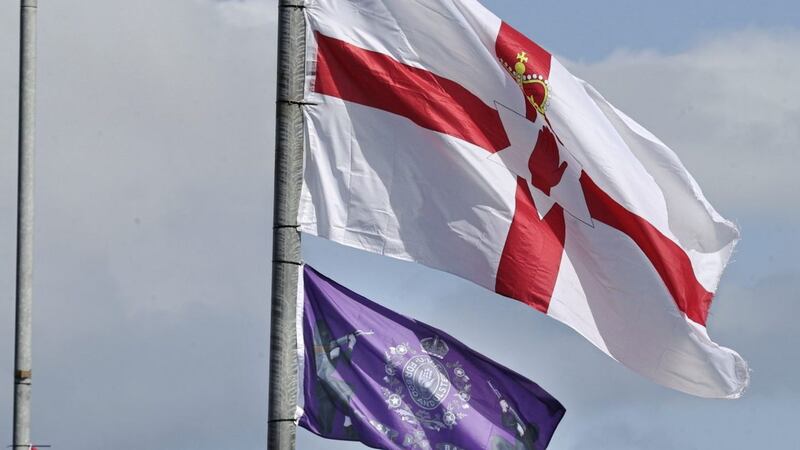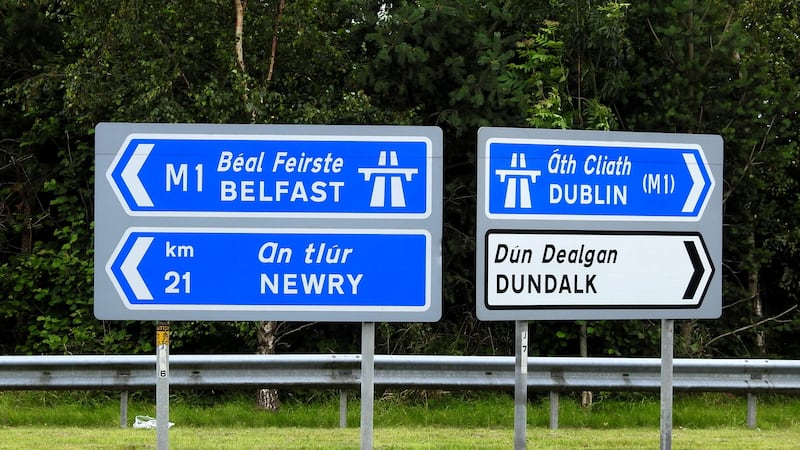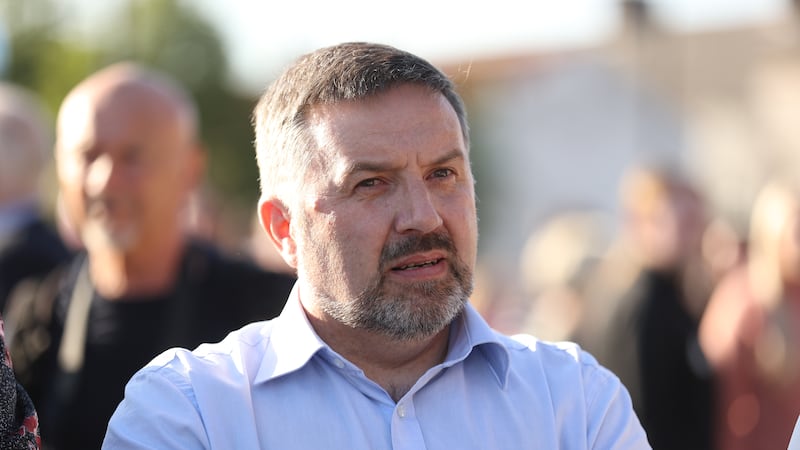Dangerous conspiracy theories are being fuelled by the executive’s refusal to publish the long-delayed report of the Commission on Flags, Identity, Culture and Tradition (FICT). Loyalists are circulating claims the report recommends all flags, banners and bunting on public property be removed by police and those responsible prosecuted, with the DUP too frightened to release this allegedly one-sided attack on Twelfth traditions.
It is extremely unlikely the report recommends anything of the kind, as FICT was established in recognition that a straightforward law and order approach is unworkable. The PSNI does not believe taking even one flag down off a lamppost without full political cover is worth the potential aggravation. In reality, the report probably contains a few suggestions that will displease a few hardliners on both sides, so it suits the DUP and Sinn Féin to sit on it. The real lesson from FICT is that future commissions must be free to publish their reports themselves.
**
Sinn Féin has been noticeably keen to stress that this year’s Feile provided successful “diversion”, with no internment bonfires in west Belfast.
The emphasis is presumably because this year’s £500,000 bonfire diversion fund at Belfast City Council was handed out too late for July 11, making the annual DUP-Sinn Féin carve-up of the cash look even more blatant than usual, as other parties at City Hall have increasingly highlighted. In a normal year, Sinn Féin can at least offer a cynical justification for earmarking a chunk of the money for Feile, given that the festival did replace internment bonfires, so its success should not be punished while lack of progress in loyalist areas is rewarded. This year, divvying up bonfire funds on an orange and green basis looks rather too clearly like the whole point of the exercise.
**
The government’s amnesty plans have been condemned by two UN special rapporteurs, leading to stern headlines and pronouncements from Stormont and Westminster parties of the UK facing international opprobrium. Special rapporteurs are not UN employees but unpaid academics who provide observational reports. Anyone can refer a complaint to them through the UN website; republican victims group Relatives for Justice says it “lobbied” the UN against the amnesty. The two rapporteurs who responded, both from the same university in Argentina, issued a ‘transitional justice’ lecture of the type heard from Jordanstown for 20 years. The government could now face a lecture at a UN committee and be found in breach of unenforceable treaties but it does not actually have to heed any of this - and judging by its response it does not intend to. Of course, that is the best of both worlds for those who quietly want an amnesty while loudly condemning it.
**
The family of murder victim Patrick McNeice want his UVF killer, Glenanne Gang member Garfield Beattie, returned to prison for sending a threatening letter to the daughter of another of his victims. Beattie was freed on a life licence in 1993. The question of whether such licences mean anything has great significance: the de facto amnesty of the Good Friday Agreement’s prisoner release programme comes with supposedly strict licence terms, which would also apply to anyone yet to be convicted of a Troubles offence. However, revocation is rarely used. Had it been properly enforced, we would be on a much firmer footing with tackling paramilitaries, dealing with the past and considering further amnesty proposals. As things stand, licensing is so worthless the McNeice family’s demand has been bounced between the NIO, the PSNI and the Department of Justice, as nobody even knows who is responsible for it.
**
Anyone who has not been to the Exploris aquarium in Portaferry might think a lot of fuss is being made about cutting down 14 trees in its car park. The Ards and North Down Borough Council proposal has caused local horror, garnered media coverage across Northern Ireland and is now being reviewed following protests and campaigns.
The trees really have to be seen to appreciate what a charming feature they are, like a living town wall. Felling them to accommodate a few more cars drives a coach through so many planning and environmental policies it is hard to imagine how such a notion got so far. There is not even anything fishy about it, aquarium aside. Boneheaded bureaucracy explains it all.
**
The proportion of A-levels graded A and A* has risen above 50 per cent in Northern Ireland for the first time, leading to more grumbling than usual about ‘grade inflation’. This is shocking economic illiteracy from those making the accusation. The value of A-levels in an inflation analogy is not the gradings themselves but what they ‘buy’ - entrance to university. Because the number of undergraduate places available across the UK has doubled since 1990, the purchasing power of each grade has held up well: two As and a B will still get you into most top courses at the best universities, while 80 per cent of students with three Ds get in somewhere. Whether high grades are easier to obtain is a different issue - but if educational standards used to be better, why do so few people understand this?









